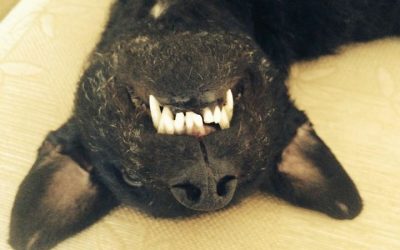So here we are April 2020 – the country is in lockdown, we’re not allowed to see our friends or family, the NHS is stretched beyond belief and our Prime Minister is in intensive care. Quite a bleak picture.
However, COVID 19, is only affecting us humans. Our dogs are blissfully unaware of what’s happening. In fact they’re thrilled that we’re home! Despite the craziness going on all around us Spring is still continuing to spring, birds are singing, sun shining and the daffodils are looking mighty proud of themselves.

Daffodils do make a pretty picture – but not a healthy snack!
Gardening with our best friends sounds idyllic doesn’t it, you dig a bit, your dog digs a bit but the the garden is a common place for poisoning. Vets are also stretched with skeletal staff and emergency only appointments. We need to be safeguarding our dogs as much as possible.
The following plants are poisonous to dogs:
– Daffodil bulbs
– Foxgloves
– Hydrangea
– Rhonodendron
– Sweet peas
– Tulip bulbs
– Wisteria
To name a few!
Then we have pesticides in the garden, slug pellets, weed killer, rat poison. Make sure you check the label, most will give directions for use if you have a pet household. The sprays that go one farmers field can some times be harmful so don’t let your dogs drink out of the puddles in fields and try and avoid fields that have recently been worked on.
Of course, one of the most obvious things is human food! A bit like Christmas really. There’s a lot of food around at Easter than is poisonous to dogs. The most common being chocolate from those Easter eggs and hot cross buns full of raisins. Make sure they are out of reach of the dogs and if you have a counter surfer, keep the food safely stored in a cupboard.
Blue green algae – found in still water such as lakes and reservoirs. Most popular dog walking spots will have signs making you aware of the presence of this. Please don’t let your dog swim in it, poisoning can take hold really quickly and can be fatal. Have a google and look some pictures of what this type of algae looks like to familiarise yourself with it. If you’re not sure it just easier to not let your dog swim. It can also be present in water bowls that are left outside, so give them a good scrub and always refill with fresh water.

It’s always worth checking the water before your dog swims – if you’re not sure, don’t let them swim.
What to do if you think your dog has been poisoned
If you think your dog has been poisoned then don’t wait around, get them straight to the vets and act quickly. If you have a label of what you think has been ingested then take that with you. Call your vet en route to let them know that you are coming. Some signs that your dog has been poisoned are:
– Seizures
– Vomiting
– Bruising
– Lethergy
– Nosebleeds
That said, this information is more for your awareness and understanding. Although it sounds scary, if you manage the risks, there’s slim chance that you dog will ever be poisoned!
Have a relaxing and happy Easter with the lovely weather that has been forecast!
This is a really important website all about poisoning for pets, save it to your favourites
Back to blog





